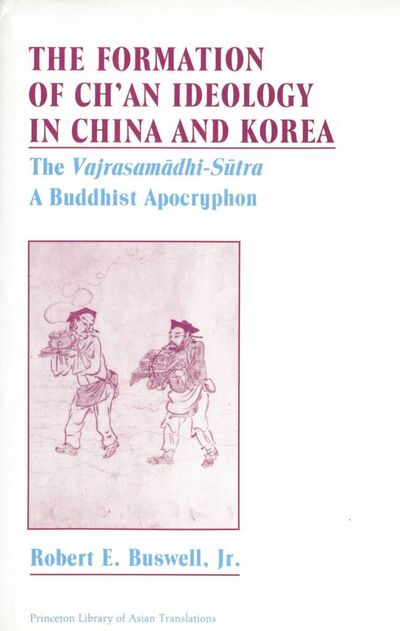The Formation of Ch'an Ideology in China and Korea
< Books
| Line 31: | Line 31: | ||
*{{i|'''Chapter Four:''' Ch'an Elements in the ''Vajrasamādhi'': Evidence for the Authorship<br> of the Sūtra|123}} | *{{i|'''Chapter Four:''' Ch'an Elements in the ''Vajrasamādhi'': Evidence for the Authorship<br> of the Sūtra|123}} | ||
**{{i|Ch'an Influences in the ''Vajrasamādhi''|123}} | **{{i|Ch'an Influences in the ''Vajrasamādhi''|123}} | ||
| − | **{{i|Early Korean | + | **{{i|Early Korean Sǒn and the Legend of Pǒmnang|164}} |
**{{i|The Authorship Problem|170}} | **{{i|The Authorship Problem|170}} | ||
**{{i|The Legacy of the ''Vajrasamādhi''|177}} | **{{i|The Legacy of the ''Vajrasamādhi''|177}} | ||
| Line 44: | Line 44: | ||
**{{i|Chapter Five: Approaching the Edge of Reality|211}} | **{{i|Chapter Five: Approaching the Edge of Reality|211}} | ||
**{{i|Chapter Six: The Voidness of the True Nature|224}} | **{{i|Chapter Six: The Voidness of the True Nature|224}} | ||
| − | **{{i|Chapter Seven: The | + | **{{i|Chapter Seven: The Tathāgatagarbha|232}} |
| − | **{{i|Chapter Eight: | + | **{{i|Chapter Eight: Dhāraṇī (Codes)|240}} |
**{{i|Epilogue|249}} | **{{i|Epilogue|249}} | ||
Revision as of 11:44, 22 April 2020
This book contains an extensive study and a translation of the Vajrasamādhi Sūtra and makes a convincing argument to rethink the "national lines of argument" that had previously dominated discussions of East Asian Buddhist traditions. Buswell shows how Chan developed in multiple communities; it was not a Chinese phenomenon that was then exported to Korea and Japan. He also shows how the scripture is firmly in the Chinese Yogācāra tradition of Paramārtha, containing an extensive discussion of "immaculate consciousness" (amalavijñāna), the ninth consciousness which unites saṃsāra and nirvāṇa in a "single taste." Buswell draws on Japanese scholarship, such as that by Mozuno Kōgen, who first concluded that the sūtra was an apocryphon.
| Citation | Buswell, Robert E., Jr. The Formation of Ch'an Ideology in China and Korea: The Vajrasamādhi-Sūtra, A Buddhist Apocryphon. Princeton Library of Asian Translations. Princeton, NJ: Princeton University Press, 1989. |
|---|---|

